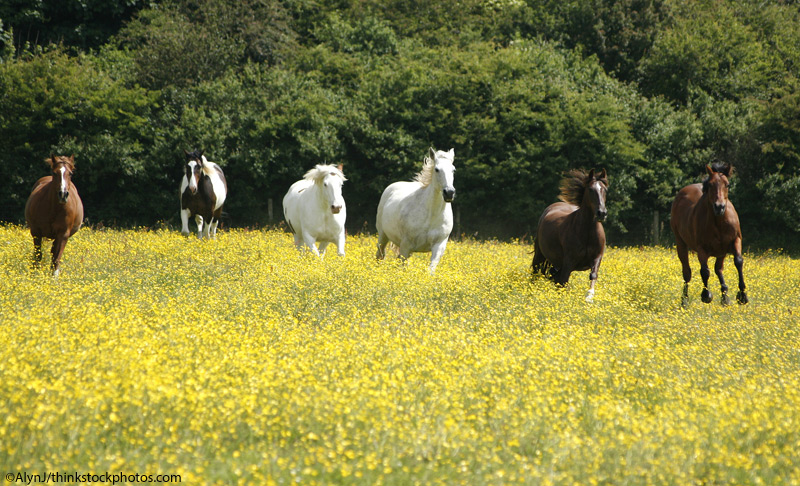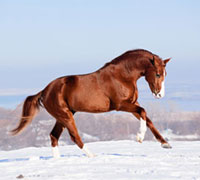
Q: I keep my 30-year-old pony at a boarding stable where she’s turned out in a fairly large field with four other horses. Most of the time they seem to peacefully coexist, but when push comes to shove, my pony is at the bottom of the pecking order and she gets chased around quite a bit. She’s healthy for her age, other than some joint stiffness, but I worry that the physical and mental stress of being chased will take a toll on her, especially in the winter when the grass is gone and they start getting territorial about their hay. Am I right to worry? Is there anything I can do to help her, short of moving her out of the barn?

A: You are right to be concerned about this unfortunately normal horse herd behavior. Sad to say, horses that may even have been “herd boss” at one time often get shuffled down the pecking order as they age by younger, stronger horses. Hopefully one or more of these ideas is compatible with your situation:
- Does the boarding stable have another pasture or even paddock that your horse and a compatible friend could be put into? I love when stables designate a “young horse” vs “senior horse” grouping, and ask new arrivals if their horse is playful and likes to run and buck or is more sedate and prefers to doze in quiet companionship to help them place them properly.
- Could additional sites of hay be put out? That is, if the stable feeds round bales could another be put into this field? Or, if they toss out individual flakes of hay at feeding time, could they place the flakes further apart and add more of them? For example, instead of just four piles of hay, or even five, could they make six or eight?
- Is the shelter expansive enough in your pony’s turnout situation so that she has access to it when it’s rainy, snowy, or windy? Although the square footage may seem adequate, a dominant horse may decide a shelter is “his” and prevent others from entering.
- Do the horses get brought into stalls at night? Having some down time where she does not constantly have to defend her food and space might go a long way toward keeping her healthy mentally and physically. As long as she can see other horses, your pony may appreciate being able to eat her full meal in peace! Separation is not for everyone though, and reintroduction to the herd may create chaos, so be careful with this one.
I hope you’re able to collaborate with the stable you board at and come up with some workable solutions. Keep in mind that as horses age, they become less efficient at pretty much everything: digestion, immunity, maintaining muscle mass, etc. So you’ll want to be sure you’re working with your veterinarian to stay on top of weight loss, wellness care, soundness, and other trends. Ask when it might be time to add a joint product to help manage discomfort, GI support to get the most out of the food she receives, or other supplement. Best of luck!
Liked this article? Here are others you’ll love:
Riding and Training the Senior Horse
Senior Horses: Aged to Perfection
Throughout 2014, Dr. Lydia Gray will be answering your horse-health questions at horseillustrated.com/AskTheVet. Got a question for Dr. Gray? Send it to hc-editor@i5publishing.com and use subject line “Ask the Vet.”



